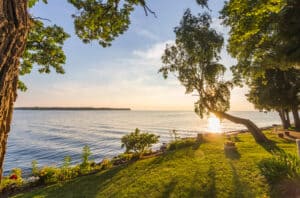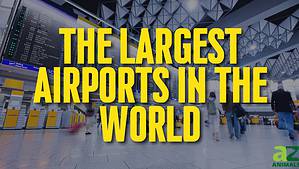Nigeria is famously referred to as the Giant of Africa. Not because it is the largest country in terms of land mass but because it is the continent’s most populous nation. The country has over 200 million people living within its 356,669 square mile area. Nigeria’s former capital, Lagos, is one of the most populated cities. Interestingly, it is not the largest in terms of its overall landmass. Nigeria’s largest cities are spread across various parts of the country. Here are the largest cities in Nigeria in terms of land area.
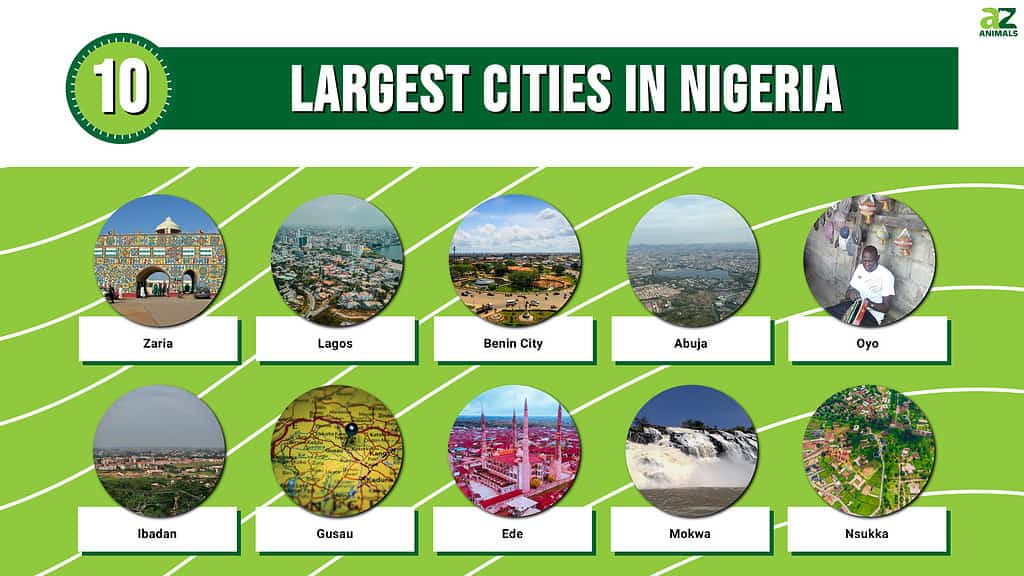
10. Zaria (217.4 sq mi)
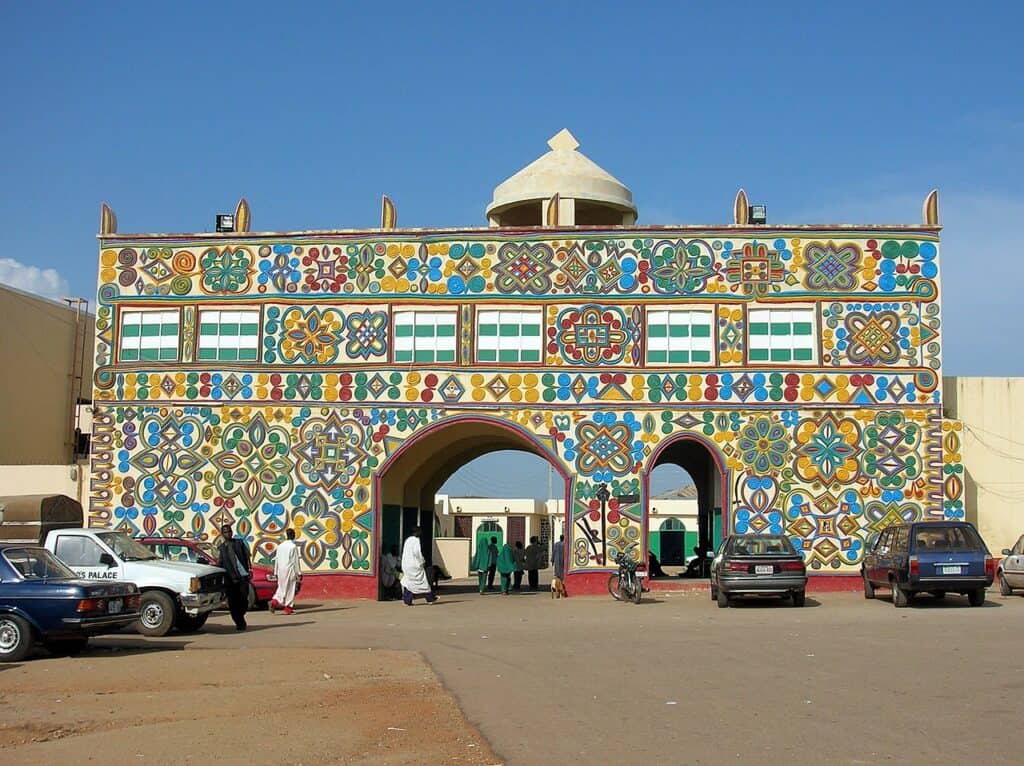
Zaria is located in present-day Kaduna state.
©Shiraz Chakera / CC BY-SA 2.0 – License
Zaria is one of the seven major Hausa city-states and also one of the largest cities in Northern Nigeria. The city is named after Queen Amina Zaria, a prominent female Hausa leader that ruled the powerful Zazzau Kingdom during the pre-colonial era. Zaria, located in present-day Kaduna State, is home to Ahmadu Bello University, one of the largest universities in Nigeria.
9. Lagos (452.2 sq mi)
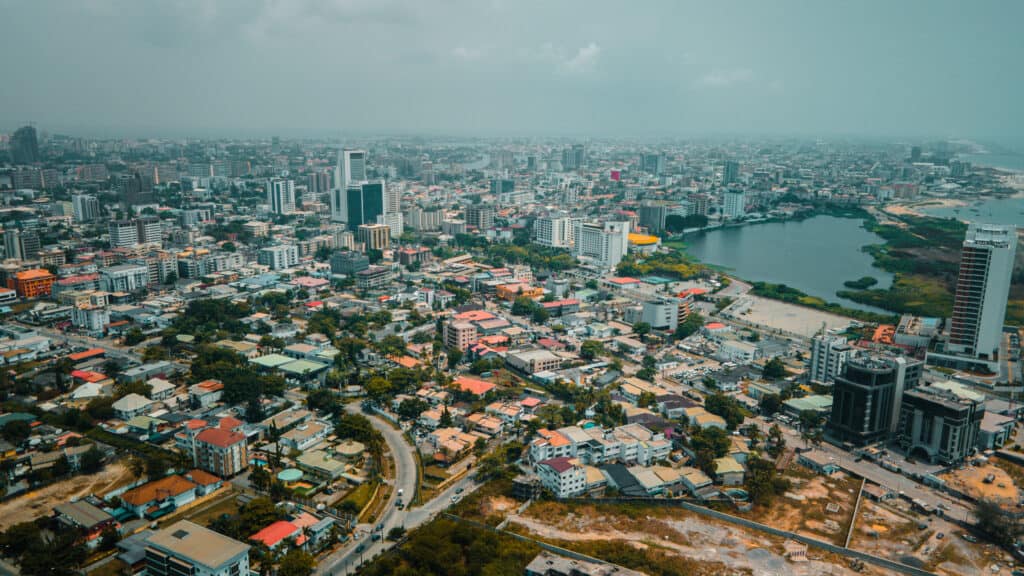
The port city of Lagos is Nigeria’s most important commercial city.
©iStock.com/Kehinde Temitope Odutayo
The port city of Lagos is Nigeria’s most important commercial city. The city is located on the edge of the Atlantic and attracts an influx of residents from all parts of the country. Although it is historically a native Yoruba City, Lagos’ status as the country’s central economic hub means it is now a melting pot of people and culture from all over the country. Despite being one of Nigeria’s most populous cities, Lagos ranks low on the list of biggest cities in terms of land area. By implication, the state is the most densely populated city in Nigeria.
8. Benin City (464.9 sq mi)
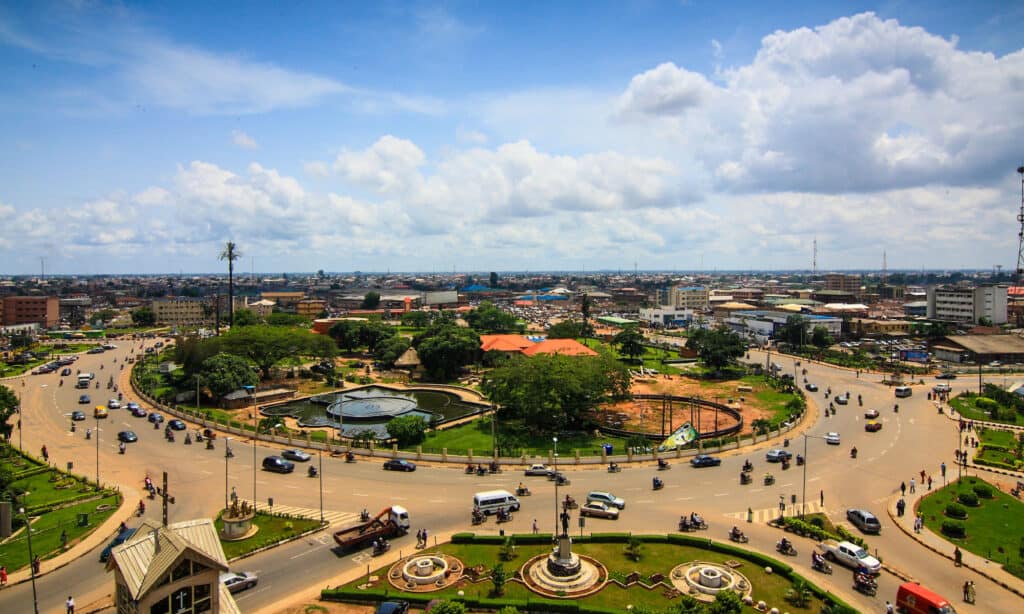
Benin City is Edo State’s capital and Nigeria’s fourth most populous city.
©JERRY CHIDI/Shutterstock.com
Benin City is Edo State’s capital and Nigeria’s fourth most populous city. The Benin Kingdom is renowned worldwide for its arts and cultural artifacts. Some of the most popular ones are the Benin bronze sculptures. Many cultural artifacts are still in museums all over the world.
7. Abuja (683 sq mi)
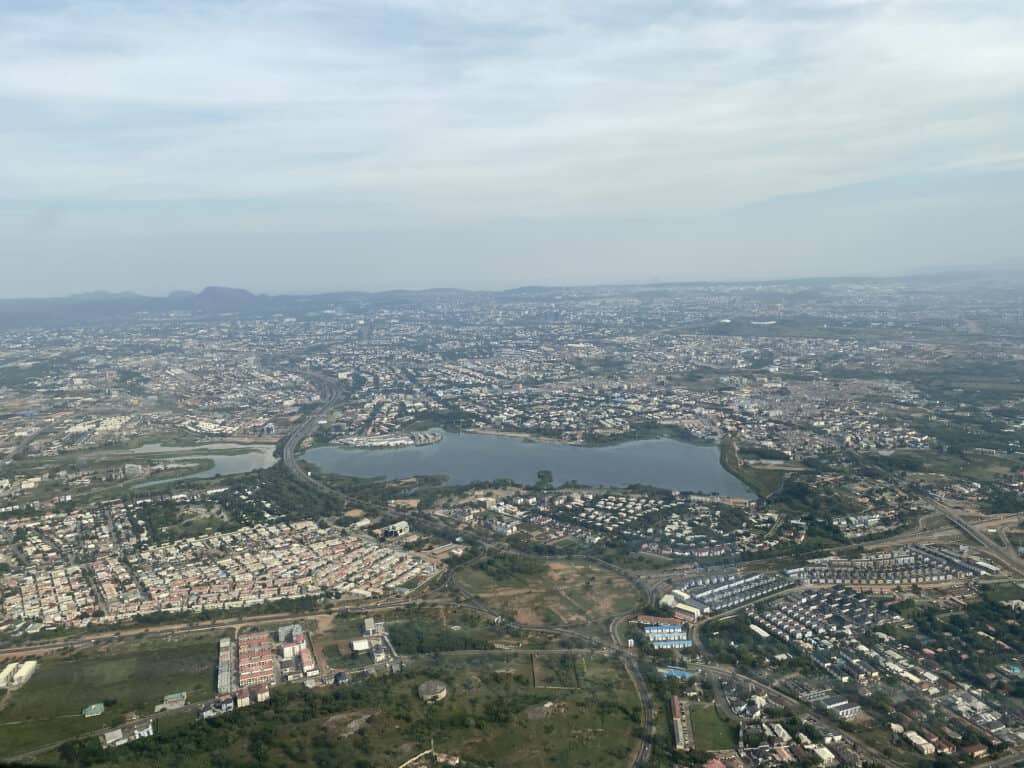
Abuja is located in the center of Nigeria.
©iStock.com/Iyke Oby
Abuja is located in the center of Nigeria. Coincidentally, it is also the center of political and administrative power, chosen to replace Lagos, the country’s colonial capital. As the country’s federal capital territory, the city of Abuja was planned from scratch and is one of Nigeria’s most well-planned cities.
6. Oyo (937.1 sq mi)
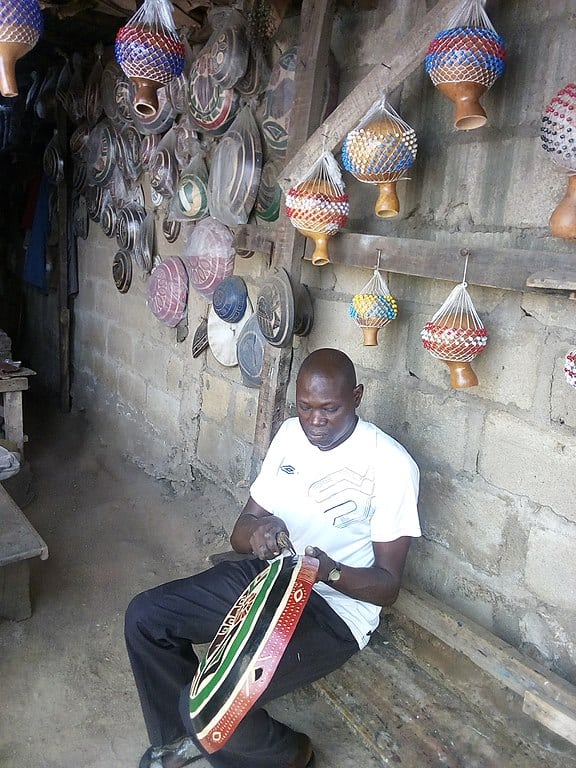
Oyo State is named after the ancient city of Oyo.
©Tijani Lukman / CC BY-SA 4.0 – License
Oyo State is named after the ancient city of Oyo. At some point in history, this important Yoruba city was one of Africa’s most powerful kingdoms. The Oyo empire extended its reach into other countries of Africa. The reach of the kingdom was as far away as Dahomey in the present-day Benin Republic. Although the empire collapsed when the country became a protectorate of Great Britain in 1888, the city that was Oyo’s seat of power still occupies a vast geographical area.
5. Ibadan (1,190 sq mi)
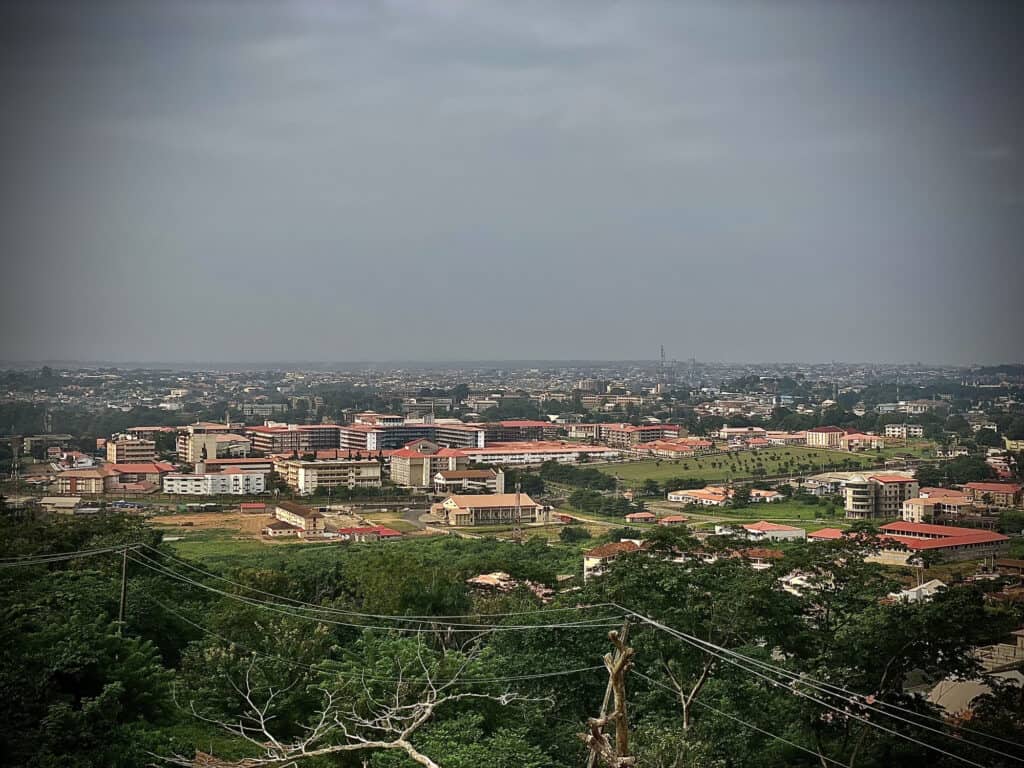
The city of Ibadan is one of the most populated cities in Nigeria.
©iStock.com/Bimbo Omopo
With a population of over 6 million people, the city of Ibadan is one of the most populated cities in Nigeria. It is also one of the country’s largest cities in terms of its geographical area. Often ranked as one of the fastest-growing cities in Africa, this massive southwestern state of Nigeria is a major commercial center. Ibadan is also a major educational city. The state is home to the first university in Nigeria. The city’s proximity to Lagos, the country’s commercial capital, is responsible for the influx of people and commercial activities.
4. Gusau (1,299 sq mi)
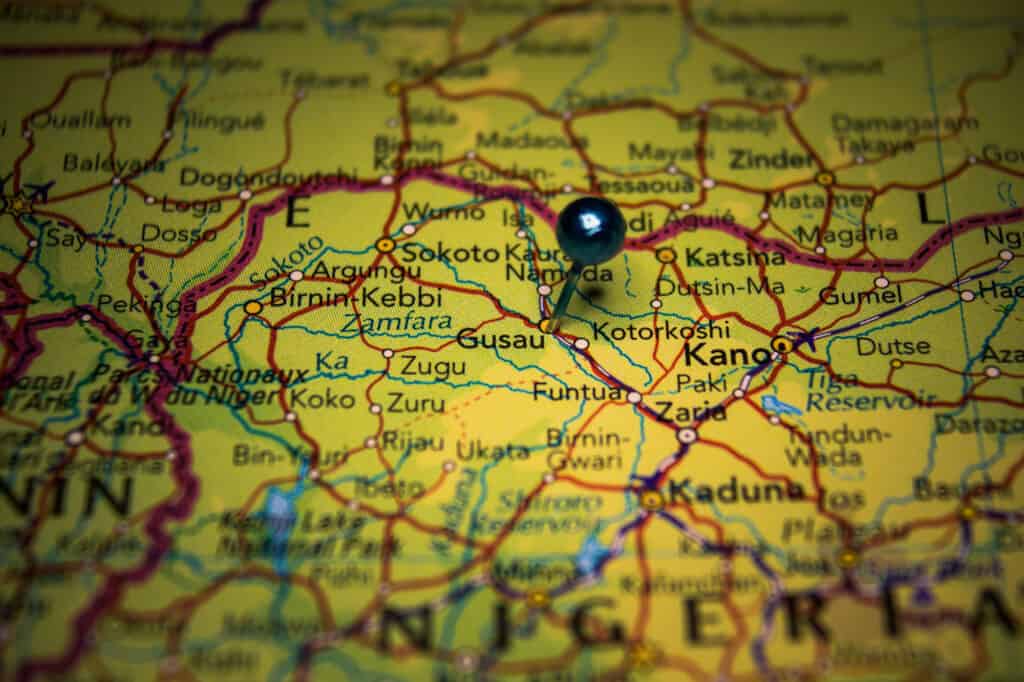
Gusau is the capital of Zamfara State and one of the largest cities in Nigeria.
©Zarko Prusac/Shutterstock.com
Gusau is the capital of Zamfara State and one of the largest cities in Nigeria. The growth of this multi-ethnic city dates back to the colonial era when the city served as a major commercial and administrative center. Gusau is characterized by a well-connected network of roads and rails and has remained a prominent commercial location in Northwestern Nigeria. The city’s economy is built around agriculture as a major source of income.
3. Ede (1,300 sq mi)
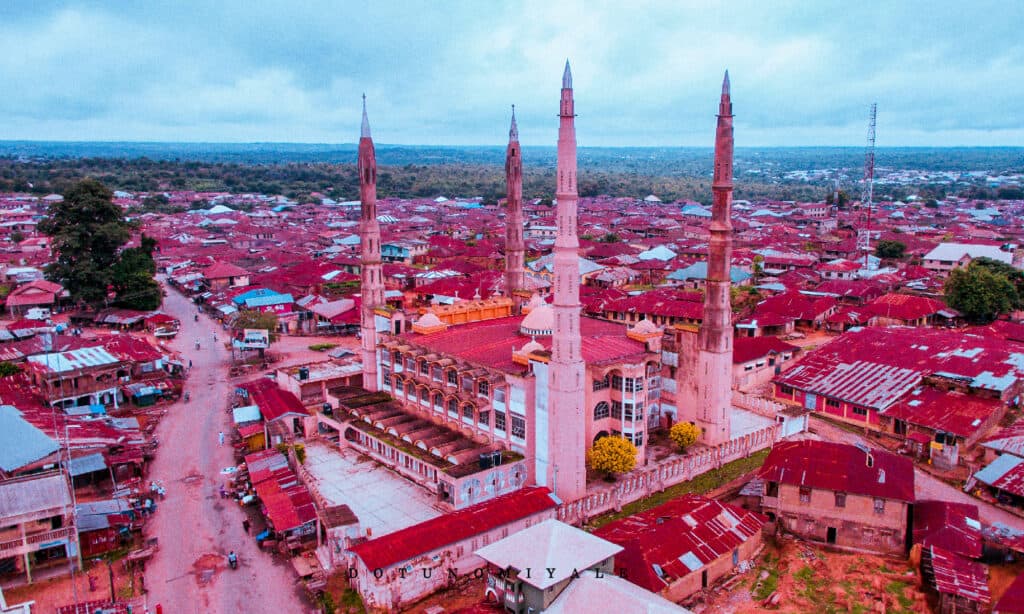
The city of Ede is located in Osun State in the heart of Southwestern Nigeria.
©Dotun Omiyale/Shutterstock.com
The city of Ede is located in Osun State in the heart of Southwestern Nigeria. The city’s location at the intersection between different cities and towns in Osun State makes it a significant entry point and one of the fastest-growing cities in Southwestern Nigeria. This part of the country is home to the Yoruba tribe of Nigeria, and Ede has one of the highest populations of the Yoruba people in the country.
2. Mokwa (1,675 sq mi)
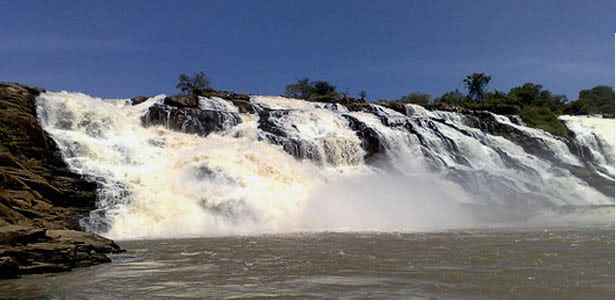
Mokwa is located in Niger State. A popular tourist attraction in Niger State is Gurara Falls.
©Wolex640 / CC BY-SA 4.0 – License
Mokwa, a city in Niger State, is one of the biggest cities in Nigeria. Coincidentally, Niger State is also the biggest state in the country in terms of land mass. Despite having the largest land mass in Nigeria, Mokwa is not among the most popular cities in Nigeria. The city used to be relevant during the country’s colonial era. It was a significant gateway to the Northern part of the country. The residents of Mokwa are of diverse tribes, including Gbagi, Igbo, Hausa, and Yoruba.
1. Nsukka (2,141 sq mi)
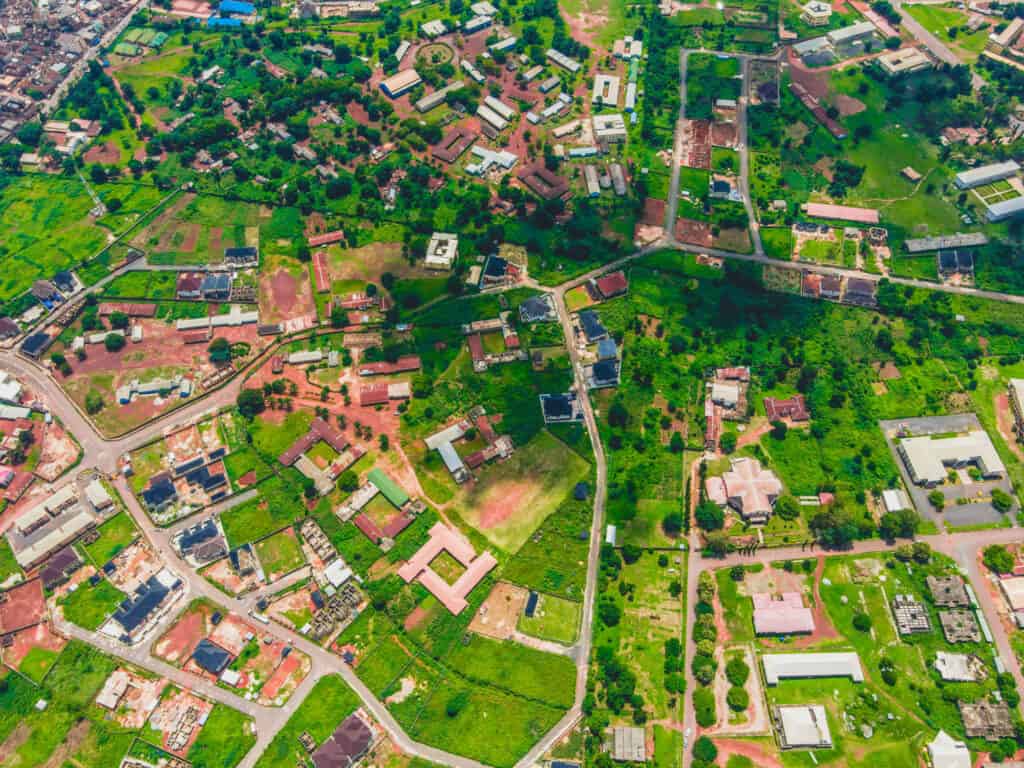
Nsukka is home to the native Igbo tribe of Nigeria.
©DannyEgbuche/Shutterstock.com
It is located in the heart of Eastern Nigeria and is home to the native Igbo tribe of Nigeria. Nsukka’s dominance as one of Nigeria’s major cities dates back to pre-colonial times. The ancient kingdom had a massive fighting force which they used to wage war and take territories from neighboring cities, amassing a significant land area.
Conclusion
As this list of the largest cities in Nigeria shows, the land mass of cities in the country is not strictly proportionate to their population. The population in Nigeria’s cities is tied more directly to the level of development and commercial significance of these cities.
Summary of 10 of the Largest Cities in Nigeria
| Rank | City | Size |
|---|---|---|
| 1 | Nsukka | 2,141 sq mi |
| 2 | Mokwa | 1,675 sq mi |
| 3 | Ede | 1,300 sq mi |
| 4 | Gusau | 1,299 sq mi |
| 5 | Ibadan | 1,190 sq mi |
| 6 | Oyo | 937.1 sq mi |
| 7 | Abuja | 683 sq mi |
| 8 | Benin City | 464.9 sq mi |
| 9 | Lagos | 452.2 sq mi |
| 10 | Zaria | 217.4 sq mi |
The photo featured at the top of this post is © MOdAMO/Shutterstock.com
Sources
- Buzz Nigeria, Available here: https://buzznigeria.com/the-10-largest-cities-in-nigeria-by-population-land-area-and-infrastructural-development/
- Property Pro Insider, Available here: https://www.propertypro.ng/blog/5-largest-cities-in-nigeria/
Thank you for reading! Have some feedback for us? Contact the AZ Animals editorial team.



